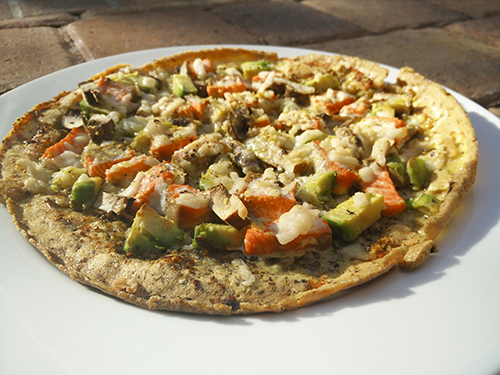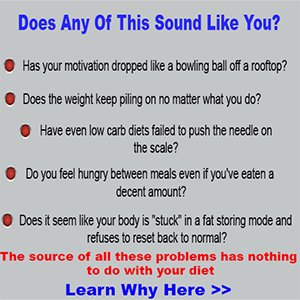When Your Cheat Meal Is Helpful (and when it is not)
By: Dr. Bryan Walsh
Many fat loss experts out there recommend cheat meals to help sustain fat loss and decrease the slowing down of the metabolism while following a low-calorie diet. And to be honest, I agree with this strategy . . . mostly.
The concept of a cheat meal, or cheat day, is substantiated by research as well as empirical evidence by people who use them. But could they be sabotaging your results at all?
Cheat Meals Can Last For Months
.jpg)
It is ignorant to simply look at food as a source of nutrients for your body. It’s almost just as nearsighted to see food as merely causing hormonal responses in the body. Fat loss goes well beyond one’s hormones, including leptin.
The reality is that foods we consume, as well as the health of our digestive system, can cause immunological and inflammatory responses that last weeks to months after we eat a given food.
Take, for example, gluten. With the complexity of gluten sensitivity, accurate statistics are difficult to come by; but, there is some evidence that as many as 30 percent of our population have an issue with gluten.
Sabotaging Fat Loss
 Let’s say you were following a low-calorie, whole-food, and maybe even gluten-free diet. When your cheat day rolls around, if you eat popular cheat items like these, you may be doing more harm than good:
Let’s say you were following a low-calorie, whole-food, and maybe even gluten-free diet. When your cheat day rolls around, if you eat popular cheat items like these, you may be doing more harm than good:
• Pizza
• Mac and cheese
• Cookies
And no, it might not have to do with leptin, thyroid hormone, or your overall metabolic rate, but it might cause inflammation.
There is evidence that gluten can remain in your system for up to 14 days after ingestion; but even worse is that inflammatory gluten antibodies can remain in your system for anywhere between 4-8 months. Inflammation can sabotage weight loss on many different levels.
But more specifically, wheat products also have something called Wheat Germ Agglutinin, which according to research, may contribute to leptin resistance. So much for cheat days containing wheat and gluten.
What You Should Do
Again, if you are following a low-calorie diet targeted at fat loss, the occasional cheat meal or even cheat day may be helpful psychologically as well as physiologically. However if you do have a cheat meal, why not just eat more of the healthy foods you’ve been eating while on the diet. And if you get a hankering for a treat, find a healthy gluten-free option instead. (There are some sinfully delicious gluten-free desserts available today that will fulfill the desire of every sweet tooth in your mouth.)
The Bottom Line
Gluten sensitivity is very real, but it doesn’t impact everyone. If you’re someone that is sensitive to gluten and are interested in fat loss, you should avoid it at all costs. But beyond that, cheat meals promoted by some fat loss experts just don’t make sense to me. Junk food causes a number of physiological issues but, as we talked about here, they don’t just last for the meal or the day you’re cheating. They may be sabotaging your fat loss for weeks and months to come.
A Question For You
Now that you have a more complete picture of “cheat days” based on the latest research, do you really think an intelligent fat loss plan would include foods such as pizza and Mac N Cheese?
CLICK HERE To See Your Secret Cheating Fat Loss Weapon >>
About Jayson Hunter & Jaylab Pro

Jaylab Pro was founded by Registered Dietitian Jayson Hunter. Jayson has been recognized as one of America's foremost weight loss experts by America's Premier Experts™. He has also been featured in USA Today for this accomplishment. Jayson is also a best-selling author having co-authored multiple books in health & fitness and business growth. Jayson and the Jaylab Pro team are proud to create content that helps improve the lives of millions of people around the world. We hope you enjoy it just as much as others have.
 If you order a JayLabPro SmartShip product or any Combo Package, we will automatically ship you a new supply of the product or products you have ordered every month, starting 30 days after your initial order is shipped, and continuing until you cancel. The credit card you are using today will be billed the lowest available price for those product or products when your order is shipped, but shipping will be FREE. You may log into your customer account or call our customer service department toll-free at 1-888-9GETPRO (1-888-943-8776) between the hours of 8am – 9pm EST Mon-Fri to cancel future shipments, customize the timing of your shipments, or change the credit card used for billing.
If you order a JayLabPro SmartShip product or any Combo Package, we will automatically ship you a new supply of the product or products you have ordered every month, starting 30 days after your initial order is shipped, and continuing until you cancel. The credit card you are using today will be billed the lowest available price for those product or products when your order is shipped, but shipping will be FREE. You may log into your customer account or call our customer service department toll-free at 1-888-9GETPRO (1-888-943-8776) between the hours of 8am – 9pm EST Mon-Fri to cancel future shipments, customize the timing of your shipments, or change the credit card used for billing.










